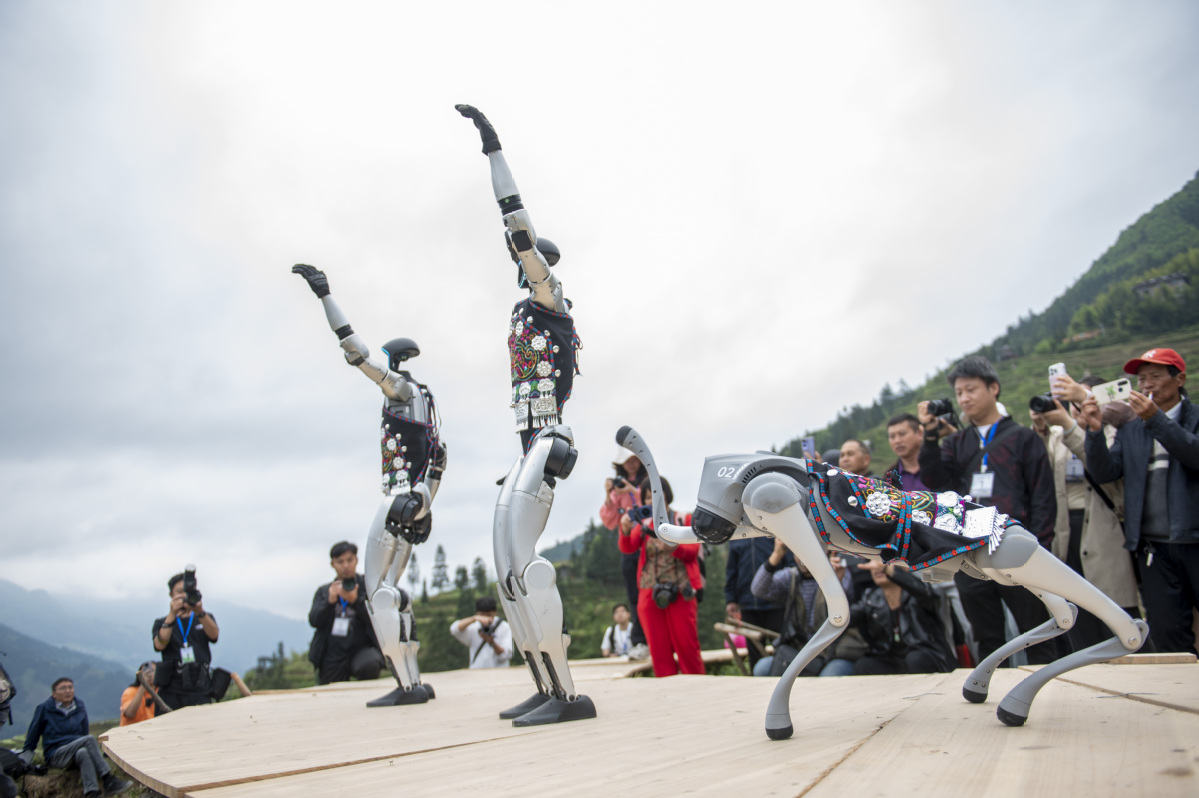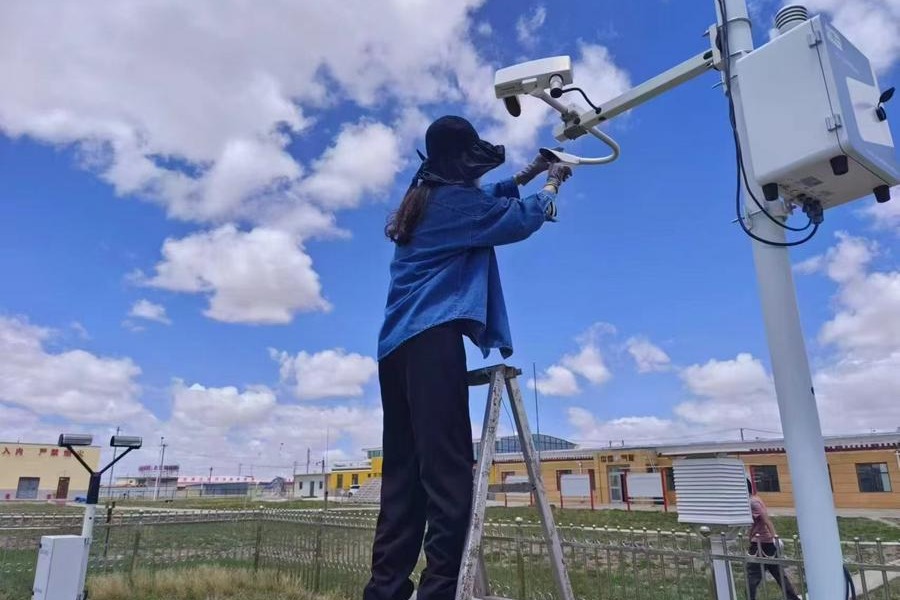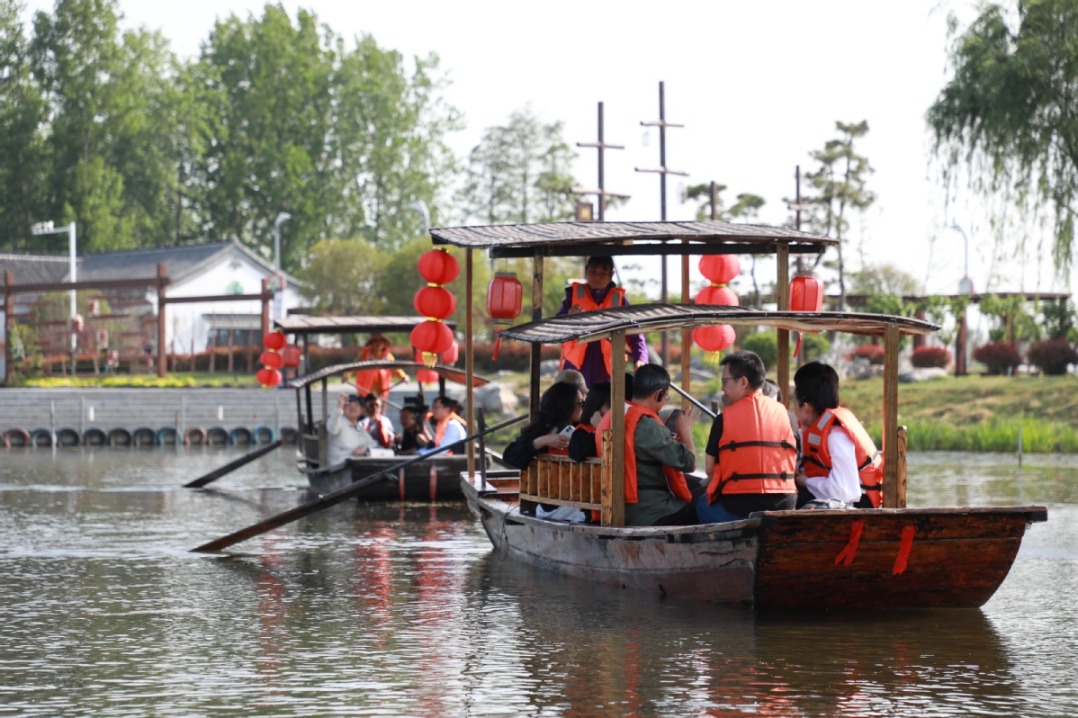Xi urges sound AI advancement
Nation strives to gain first-mover advantage, secure competitive edge


President Xi Jinping has underlined the need to leverage the strength of the country's system for mobilizing resources nationwide to promote the sound development of artificial intelligence, and he called for efforts to overcome challenges regarding core technologies such as high-end chips and foundational software.
Xi, who is also general secretary of the Communist Party of China Central Committee, made the remarks on Friday when presiding over a group study session of the Political Bureau of the CPC Central Committee.
He emphasized that in the face of rapidly evolving new-generation AI technologies, China will uphold self-reliance and self-strengthening, prioritize application-oriented development, and promote the healthy and orderly advancement of the country's AI sector toward a beneficial, safe and equitable direction.
Xi's remarks came as China strives to take the initiative in AI development to fuel its high-quality growth amid the mounting uncertainties of the international landscape, particularly caused by the disruption of industrial and supply chains due to the tariff and trade wars launched by the United States.
In the Government Work Report for 2025, China vowed to effectively combine digital technologies with its manufacturing and market strengths. It will support the extensive application of large-scale AI models and develop new-generation intelligent terminals and smart manufacturing equipment, including intelligently connected new energy vehicles and intelligent robots.
Earlier this year, Chinese AI startup DeepSeek surprised the global AI landscape. DeepSeek, which built its open-source AI models at a fraction of the cost of building similar large language models and with fewer chips, has reduced financial barriers for global AI participation and promoted a more level playing field through technological advancements.
At the group study session, Xi pointed out that the CPC Central Committee attaches great importance to the development of AI, and has improved top-level design and strengthened implementation efforts in recent years, thereby driving a holistic and systematic advancement of the country's comprehensive AI strength.
Noting that there are still gaps and deficiencies in areas such as fundamental theories and core technologies in key fields, Xi urged acknowledging these weak links and strengthening efforts to comprehensively advance sci-tech innovation, industrial development and applications of AI.
He underlined the need to improve AI regulatory systems and mechanisms and to firmly grasp the initiative in both AI development and governance. He underscored the necessity to establish systems for technology monitoring, early risk warning and emergency response to ensure that AI is safe, reliable and controllable.
Xi stressed that breakthroughs must be achieved in fundamental theories, methodologies and tools to gain a first-mover advantage and secure a competitive edge in AI development. He called for efforts to consistently strengthen basic research and build an independent, controllable and collaboratively functioning foundational software and hardware system for AI.
Noting the importance of leveraging AI to drive paradigm transformation in scientific research and accelerate breakthroughs in technological innovation across all fields, he highlighted AI's role in the transformation and upgrading of traditional industries and the opening up of new tracks for strategic emerging industries and future industries.
The construction of computing power infrastructure should be promoted in a coordinated manner, and the development, use and sharing of data resources should be deepened, he said.
While highlighting policy support for AI, Xi said that measures should be taken to advance financial services for science and technology.
Noting that AI can serve as a global public good that benefits humanity, Xi said that it is important to widely carry out international cooperation in AI, help Global South countries strengthen their technological capacity building, and make contributions to bridging the global AI divide.
Efforts should be made to promote the alignment and coordination of development strategies, governance rules and technical standards among all parties, and to form a global governance framework and standards with extensive consensus as early as possible, he said.
In 2017, China adopted its New Generation Artificial Intelligence Development Plan, which outlines a phased approach to AI development.
According to the plan, China aims to become a world leader in overall development of AI theory, technology and applications by 2030, positioning itself as a primary global hub for AI innovation.
Seymur Mammadov, a member of the think tank EurAsiaAz in Azerbaijan, said that China's strategy in the field of AI is guided by long-term strategic planning, with clearly defined benchmarks and development stages.
"Government agencies, research institutions and private companies operate within a unified framework that promotes innovation while ensuring oversight and risk management. China also encourages international cooperation on AI through multilateral platforms and bilateral initiatives, signaling its intent to shape global norms and governance in the digital era," Mammadov said in an article published by the China Global Television Network.
By combining national planning, regulatory foresight and openness to global dialogue, China seeks to not only become a technological superpower, but also to play a leading role in the ethical, safe and inclusive development of AI worldwide, Mammadov added.




































